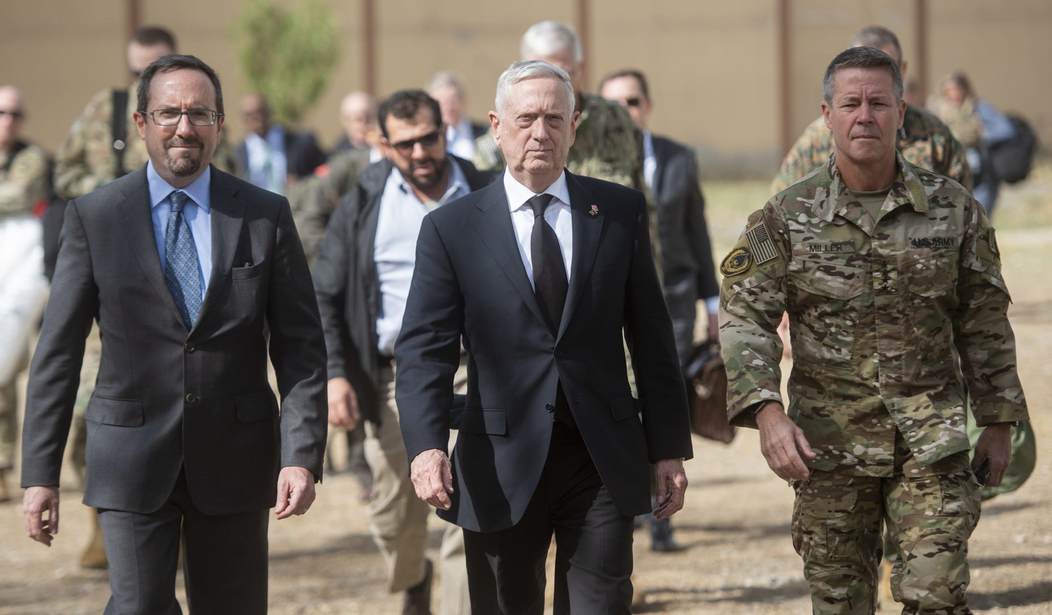Defense Secretary James Mattis said that Iran’s resistance “to any sort of restraint” on malign activity is stoking new concerns about the Islamic Republic.
Mattis was en route to meet with French Minister of the Armed Forces Florence Parly as France defends the Joint Comprehensive Plan of Action nuclear deal, and was asked by a reporter if the trajectory of the U.S. relationship with Iran is heading toward military conflict.
Mattis noted that Iran’s trajectory “has worried every nation in the region, to one degree or another, except for Syria, where they have been fully committed to keeping Assad and his murderous regime in power.”
“So when you find concerns about a nation, from Europe where there was an attempted murder of an Iranian opposition group in France,” he said. “When you see Arab nations suspicious and finding Iranian support for Houthis and firing weapons, missiles into Saudi Arabia and at civilian towns. When you see attempted bombing of UAE, when Israel is concerned about them, you have to sit back and say, wait a minute. France is a different country than the Arab monarchies, which are different from Israel, and they all have the same concern.”
“So is the trajectory that Iran is taking on the wrong track? Absolutely. And this has been the case for many years. This is not new,” the Defense secretary continued. “What is new is that Iran appears resistant to any sort of restraint on doing this kind of activity. And so that is probably going to earn them increasing distrust and increasing concern. And this is an international concern with Iran, is the way I would characterize it.”
Mattis characterized Iran as “a country that is certainly under pressure from its own citizens, and from the amount of ill will they’re creating from numerous nations.”
“And so you have to look at that as the fundamental problem. And they are going to have to decide do they want to offer in the best interests of their people, or they want to stay a revolutionary regime, exporting the revolution,” he added. “That is the fundamental question here. And if they decide it’s concern about their people, there’s are a lot of things that will stop happening in other people’s countries, we’ll see.”
President Trump predicted at his United Nations General Assembly news conference last week that “Iran’s going to come back to me, and they’re going to make a good deal.”
In his earlier speech before the assembly, Trump asked “all nations to isolate Iran’s regime as long as its aggression continues.”
“We cannot allow the world’s leading sponsor of terrorism to possess the planet’s most dangerous weapons. We cannot allow a regime that chants ‘Death to America,’ and that threatens Israel with annihilation, to possess the means to deliver a nuclear warhead to any city on Earth. Just can’t do it,” he said.
In his own UN address, Iranian President Hassan Rouhani asked member states “to remain in the international institutions” and “do not engage in imposing sanctions.”
“Sanctions and extremism are two sides of the same coin. Extremism involves negating the thinking of others, and sanctions negate the life and prosperity of people,” Rouhani said. “…I am starting the dialogue right here, and state in unequivocal terms that the question of international security is not a toy in American domestic politics. The United Nations is not a part of the United States’ administration.”
He also said that “those seeking dominance and hegemony are enemies of peace and the perpetrators of war.”









Join the conversation as a VIP Member